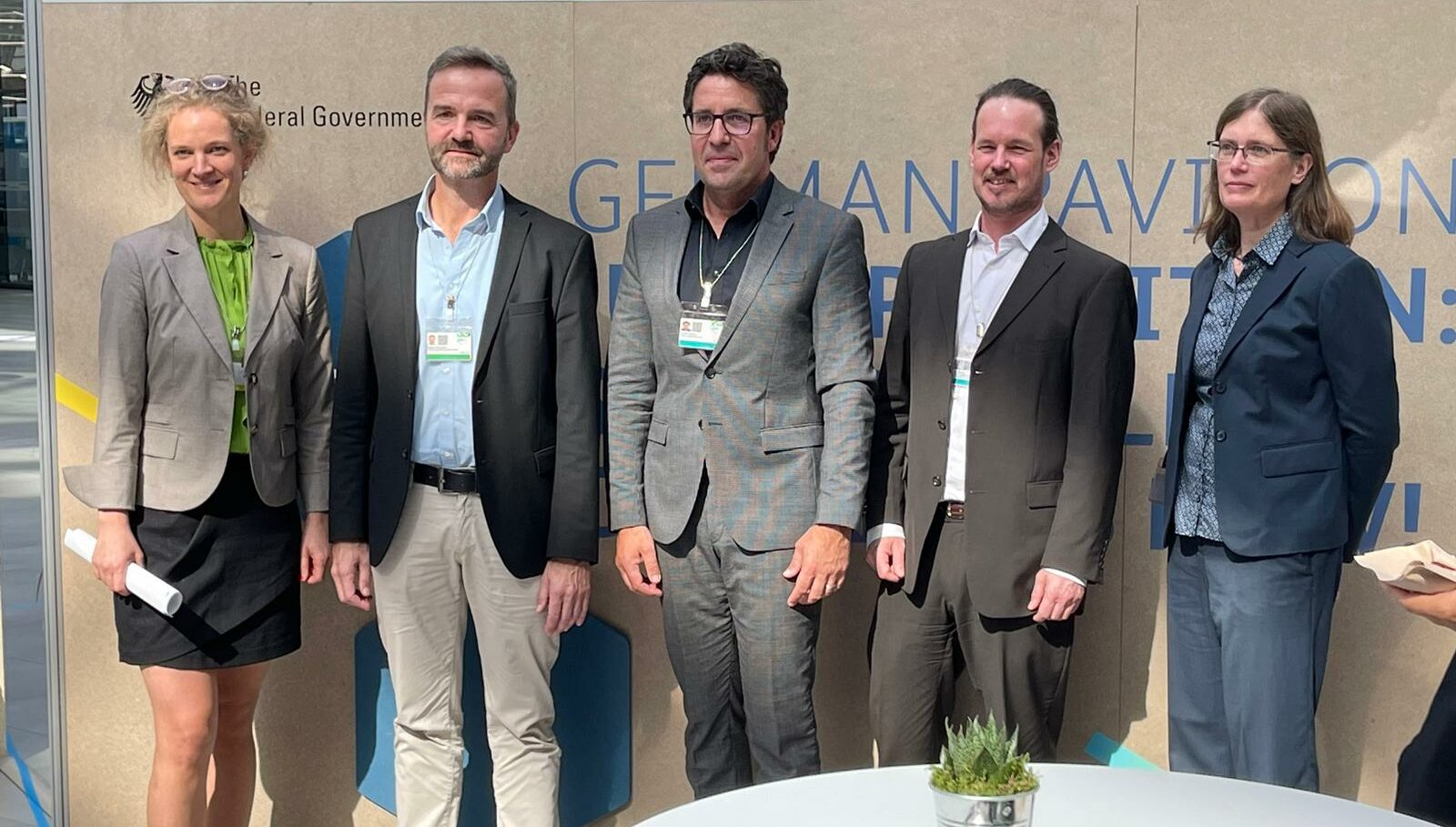The Fifth Meeting of the International Conference on Chemicals Management (ICCM5) held from September 25 to 29, 2023, in Bonn, Germany, provided an invaluable platform for international collaboration and discussion on global chemical management policies. Among the numerous significant events at ICCM5, the Nitric Acid Climate Action Group (NACAG) hosted a side event, focusing on climate-friendly fertilizers and their potential to combat climate change while ensuring global food security.
NACAG’s Commitment to Climate Action
NACAG’s participation in ICCM5 underscored its dedication to addressing two of the world’s most pressing challenges: climate change and global food security. During the side-event organized by NACAG and the GIZ sector project Agriculture, participants addressed the interconnectedness of these problems and the challenges the global food system is currently facing.
NACAG´s expert Kamilla von Reden’s opening remarks set the stage by shedding light on the three main challenges confronting the global food system:
Carbon Footprint: The global food system is a significant contributor to carbon emissions, with approximately one-third of all human-caused greenhouse gases originating from this sector. Without immediate action, it is projected to exceed the emissions limit needed to limit global warming to 1.5°C.
Food Insecurity: Despite substantial efforts to combat global hunger, progress has stagnated. In 2022, the FAO reported that around 735 million people experienced hunger, and nearly 2.4 billion suffered from moderate to severe food insecurity. These challenges are most severe in Africa, Latin America, and Asia.
Global Crises: Climate change, the COVID-19 pandemic, and conflicts like the war in Ukraine have amplified vulnerabilities in the global food system. Disruptions in food, fertilizer, and energy markets have disproportionately affected the most vulnerable populations.
Dr. Katharina Plassmann, GIZ planning officer gave an overview on emission sources and reduction potentials along the nitrogen fertilizer supply chain.
Dr. Donald Höpfner from YARA Rostock presented insights from the industry on challenges and incentives on emission mitigation of fertilizer production and finally, Prof. Dr. Nicolas Brüggemann from the Jülich Institut explained how to apply N-fertilizers in a climate friendly manner on the field.
While it’s crucial for producers to adopt proven and tested mitigation technologies and further optimize the efficiency during the production phase, it’s equally paramount not to underestimate the significance of the application phase. Efficient fertilizer utilization is key to ensuring that the majority of their nutrients enrich crops rather than escaping into the atmosphere or groundwater. Precision farming, for instance, offers innovative solutions to optimize fertilizer application. Some systems are designed to assess the precise nitrogen requirements of a given field, allowing for the targeted application of nitrogen precisely when and where it’s needed. Achieving balance in fertilizer use is another essential aspect, which means applying all necessary nutrients in the precise ratio that the crop requires for optimal growth. This equilibrium is vital for sustainable and effective agricultural practices.
The NACAG side event at ICCM5 emphasized the urgent need for transformative actions within the global food system. Climate-friendly fertilizers emerged as a promising solution, offering a path towards sustainability, reduced emissions, and enhanced food security.
NACAG’s commitment to exploring climate-friendly fertilizers represents a significant stride towards a more sustainable and resilient future for all. The insights and discussions at ICCM5 underscored the importance of collaborative efforts in finding such innovative solutions.



